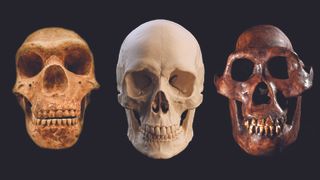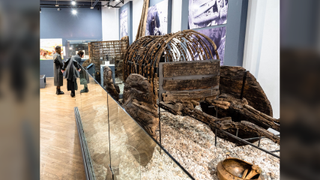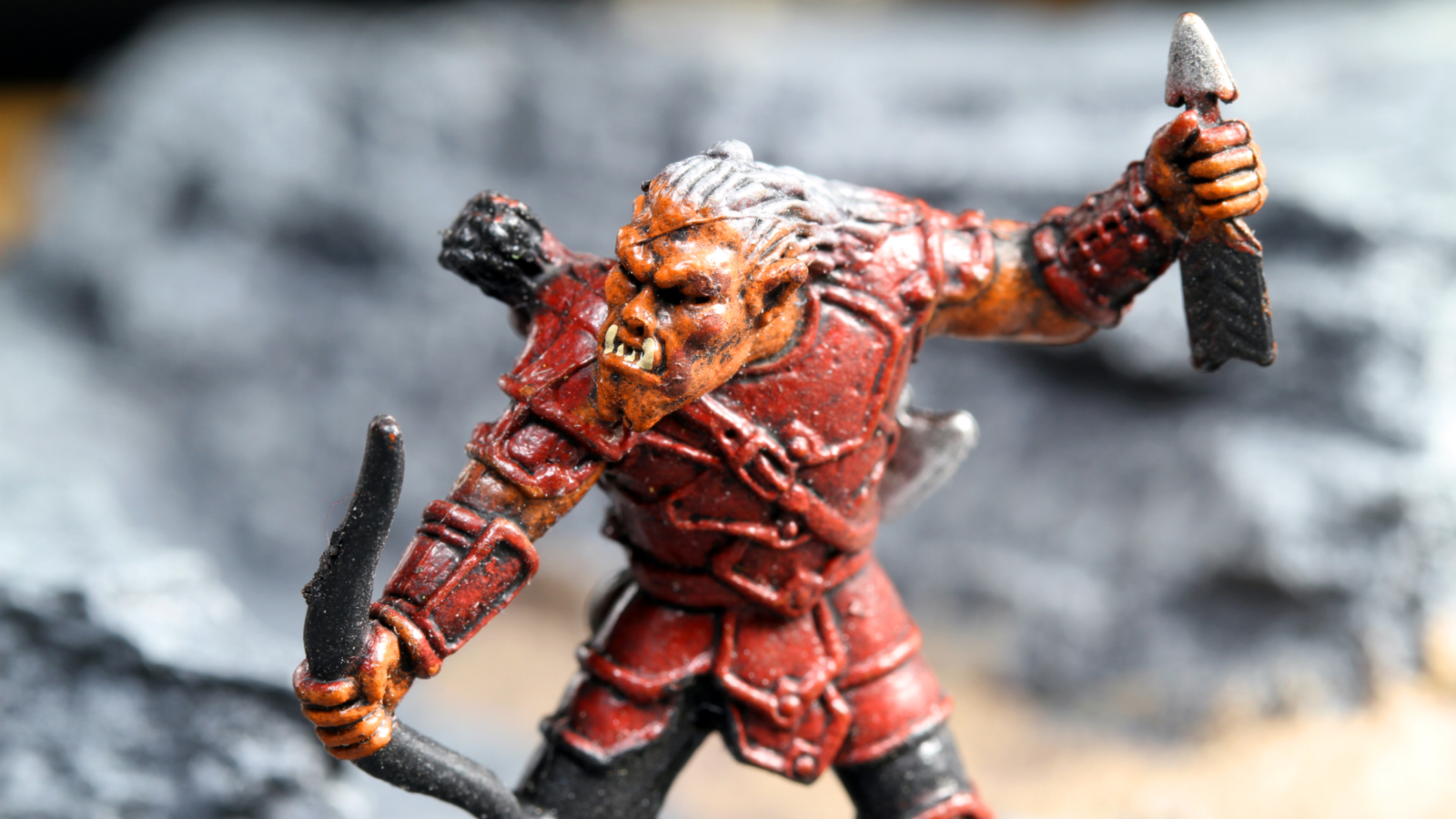
Kristina Killgrove
Kristina Killgrove is a staff writer at Live Science with a focus on archaeology and paleoanthropology news. Her articles have also appeared in venues such as Forbes, Smithsonian, and Mental Floss. Kristina holds a Ph.D. in biological anthropology and an M.A. in classical archaeology from the University of North Carolina, as well as a B.A. in Latin from the University of Virginia, and she was formerly a university professor and researcher. She has received awards from the Society for American Archaeology and the American Anthropological Association for her science writing.
Latest articles by Kristina Killgrove
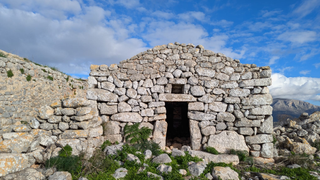
Remote region in Greece has one of the most genetically distinct populations in Europe
By Kristina Killgrove published
A genetic analysis of the Deep Maniots living in Greece's southern Peloponnese region has revealed a close-knit, patriarchal community with roots in the Bronze Age.
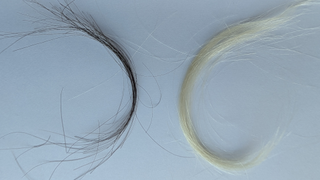
Preserved hair reveals just how bad lead exposure was in the 20th century
By Kristina Killgrove published
A new study reveals the dramatic decrease in lead exposure in the U.S. following the establishment of the Environmental Protection Agency 55 years ago.
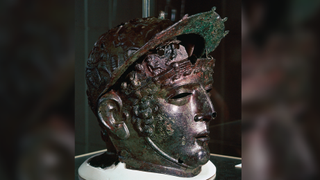
Ribchester Helmet: A rare 'face mask' helmet worn by a Roman cavalry officer 1,900 years ago
By Kristina Killgrove published
The helmet has been a powerful symbol of Roman Britain since it was discovered over 200 years ago.
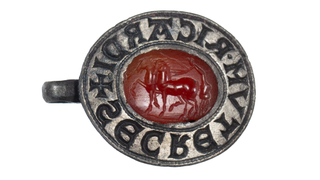
Rare medieval seal discovered in UK is inscribed with 'Richard's secret' and bears a Roman-period gemstone
By Kristina Killgrove published
The Gosfield seal is made of a medieval silver seal bezel surrounding an ancient Roman gemstone.
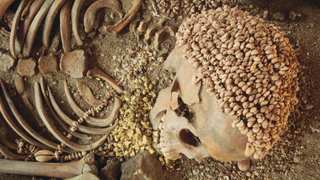
Stone Age teenager was mauled by a bear 28,000 years ago, skeletal analysis confirms
By Kristina Killgrove published
The mystery of a Stone Age teenager's death has been solved — 80 years after he was found in an ancient burial ground in Italy.

Romans used human feces as medicine 1,900 years ago — and used thyme to mask the smell
By Kristina Killgrove published
A new study shows that organic residues from a Roman-era glass medicinal vial came from human feces.
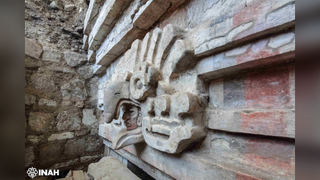
1,400-year-old Zapotec tomb discovered in Mexico features enormous owl sculpture symbolizing death
By Kristina Killgrove published
The president of Mexico called the discovery of a 1,400-year-old Zapotec tomb in Oaxaca the "most significant archaeological discovery in a decade."
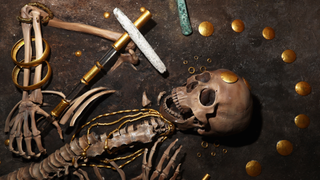
Varna Gold: Humanity's first gold jewelry was found in a cemetery with a gold 'penis sheath'
By Kristina Killgrove published
Archaeologists found hundreds of burials in the Copper Age cemetery in Varna, Bulgaria, some of which were littered with gold artifacts.
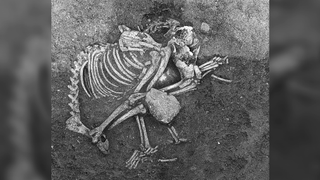
2,500 years ago, people in Bulgaria ate dog meat at feasts and as a delicacy, archaeological study finds
By Kristina Killgrove published
A study of dog bones across several Iron Age sites in Bulgaria has shown that people ate dog meat.
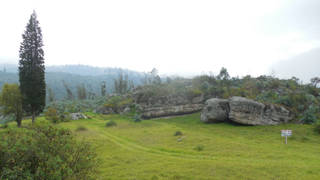
5,500-year-old human skeleton discovered in Colombia holds the oldest evidence yet that syphilis came from the Americas
By Kristina Killgrove published
An ancient DNA analysis of a 5,500-year-old human skeleton reveals that an ancestor of the bacterium that causes syphilis was present in the Americas at least 3,000 years earlier than previously thought.
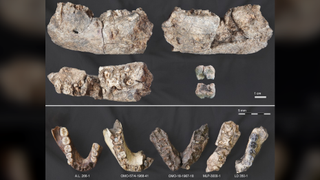
2.6 million-year-old jaw from extinct 'Nutcracker Man' is found where we didn't expect it
By Kristina Killgrove published
A fossil jaw of a distant human relative was discovered much farther north than previously thought possible, revealing new information about diversity in human evolution.

Remnants of spills on Renaissance-era textbook reveal recipes for 'curing' ailments with lizard heads and human feces
By Kristina Killgrove published
A novel biochemical analysis of a Renaissance medical text has successfully recovered centuries-old proteins that might be from lizards and hippos.
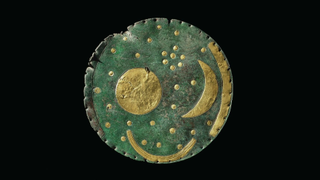
Nebra Sky Disc: The world's oldest depiction of astronomical phenomena — and it may depict the Pleiades
By Kristina Killgrove published
The unique bronze-and-gold Nebra Sky Disc appears to represent what the night sky looked like more than three millennia ago.
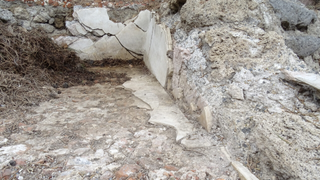
Romans regularly soaked in filthy, lead-contaminated bath water, Pompeii study finds
By Kristina Killgrove published
A study of limescale buildup in an early bathing facility at Pompeii has revealed that the water was replaced only once per day.
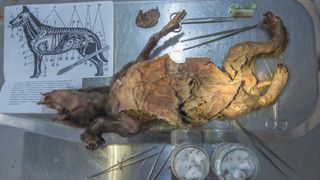
Woolly rhino flesh pulled from ancient wolf stomach gives clues to ice age giant's extinction
By Kristina Killgrove published
More than 14,000 years ago, a wolf pup ate a piece of woolly rhino. Scientists have analyzed the rhino's DNA to figure out why it went extinct.
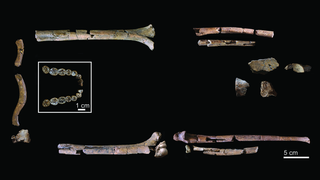
Most complete Homo habilis skeleton ever found dates to more than 2 million years ago and retains 'Lucy'-like features
By Kristina Killgrove published
Scientists have revealed the most complete skeleton yet of our 2 million-year-old ancestor Homo habilis.
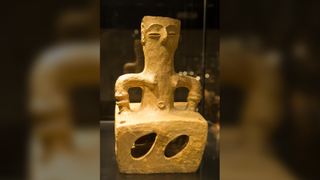
Tumba Madžari Great Mother: A boxy goddess figurine from North Macedonia designed to protect Stone Age houses 7,800 years ago
By Kristina Killgrove published
Stone Age people in Macedonia created goddess figurines whose bottom half was a house.
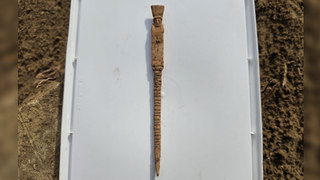
Dionysus and his erect penis depicted on 2,500-year-old bone stylus found in Sicily
By Kristina Killgrove published
Archaeologists in Sicily found a unique writing implement featuring a grumpy-faced god and his erect penis.
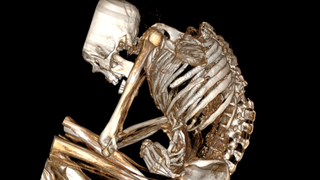
1,100-year-old mummy found in Chile died of extensive injuries when a turquoise mine caved in, CT scans reveal
By Kristina Killgrove published
The mummified remains of a man buried close to a turquoise mine in Chile's Atacama Desert suggest he was a miner who died in a tragic occupational accident.
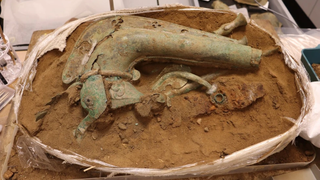
Rare 2,000-year-old war trumpet, possibly linked to Celtic queen Boudica, discovered in England
By Kristina Killgrove published
Archaeologists have announced their discovery of a metal hoard that contained an extremely rare example of a Celtic battle trumpet.
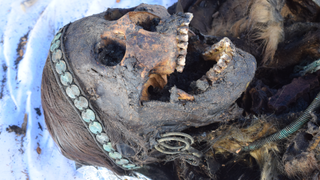
One of the last Siberian shamans was an 18th-century woman whose parents were related, DNA study reveals
By Kristina Killgrove published
A new DNA analysis of the mummies of historical Indigenous Yakuts reveals resistance to 17th-century Russian conquest.
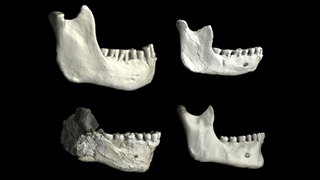
Last common ancestor of modern humans and Neanderthals possibly found in Casablanca, Morocco
By Kristina Killgrove published
A collection of bones from Casablanca holds important new clues to the origins of modern humans and Neanderthals.
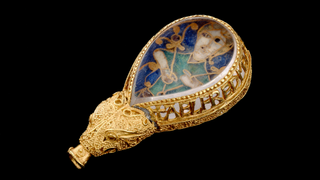
The Alfred Jewel: A 1,100-year-old treasure from England's first king that proclaims 'Alfred ordered me to be made'
By Kristina Killgrove published
This gold-encrusted jewel has an inscription revealing who made it.
Get the world’s most fascinating discoveries delivered straight to your inbox.
